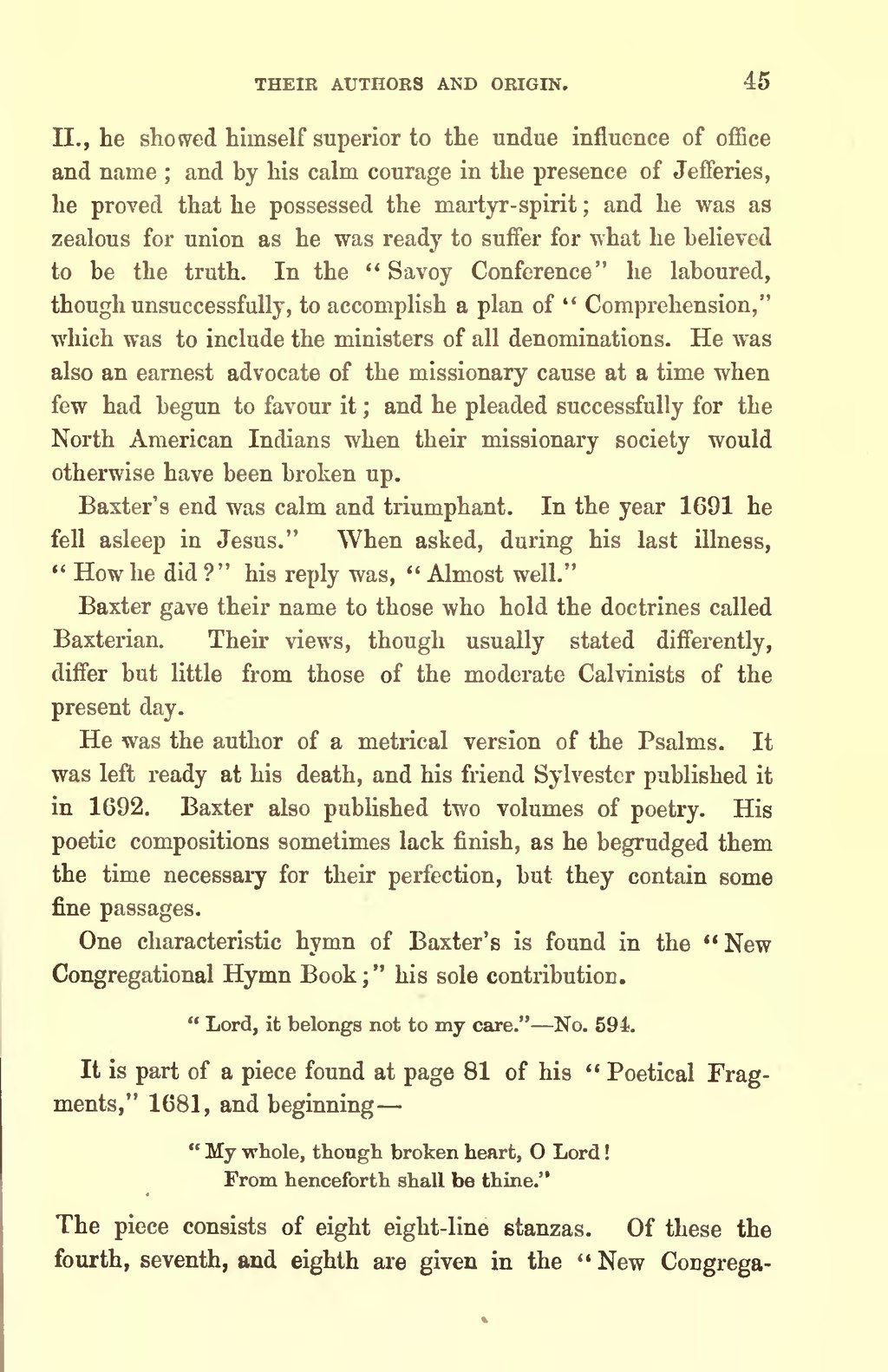THEIR AUTHORS AND ORIGIN. 45
II., he showed himself superior to the undue influence of office and name ; and by his calm courage in the presence of Jefferies, he proved that he possessed the martyr-spirit ; and he was as zealous for union as he was ready to suffer for what he believed to be the truth. In the " Savoy Conference" he laboured, though unsuccessfully, to accomplish a plan of " Comprehension," which was to include the ministers of all denominations. He was also an earnest advocate of the missionary cause at a time when few had begun to favour it ; and he pleaded successfully for the North American Indians when their missionary society would otherwise have been broken up.
Baxter s end was calm and triumphant. In the year 1691 he fell asleep in Jesus." When asked, during his last illness, " How he did ?" his reply was, " Almost well."
Baxter gave their name to those who hold the doctrines called Baxterian. Their views, though usually stated differently, differ but little from those of the moderate Calvinists of the present day.
He was the author of a metrical version of the Psalms. It was left ready at his death, and his friend Sylvester published it in 1692. Baxter also published two volumes of poetry. His poetic compositions sometimes lack finish, as he begrudged them the time necessary for their perfection, but they contain some fine passages.
One characteristic hymn of Baxter s is found in the " New Congregational Hymn Book;" his sole contribution.
" Lord, it belongs not to my care." No. 594.
It is part of a piece found at page 81 of his " Poetical Frag ments," 1681, and beginning
" My whole, though broken heart, Lord ! From henceforth shall be thine."
The piece consists of eight eight-line stanzas. Of these the fourth, seventh, and eighth are given in the "New Congrega-
�� �
